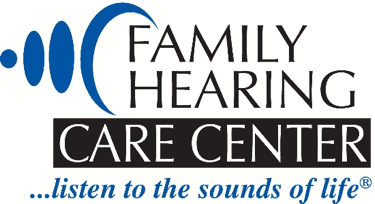
The Harmonious Connection: Unveiling the Interplay Between Hearing Health and Overall Well-being
As a hearing professional, my commitment extends beyond the mechanics of hearing to the broader canvas of overall health. The intricate relationship between hearing health and general well-being is a topic gaining increasing recognition in the medical community. Beyond the surface, our ears serve as sentinels, capturing not only the symphony of sounds around us but also playing a vital role in our holistic health.
The Interconnected Symphony
Research has unveiled the profound interconnectedness of hearing health and overall well-being. Hearing loss, once regarded as an isolated condition, is now recognized as a potential precursor or contributor to various health issues. Recent studies have established links between untreated hearing loss and conditions such as cognitive decline, social isolation, depression, and an increased risk of falls. This realization underscores the importance of viewing hearing health through a holistic lens.
Early Detection: A Pivotal Prelude
The journey to optimal hearing health begins with early detection. Regular hearing screenings, often overlooked, can be instrumental in identifying potential issues before they manifest into more significant challenges. The advent of advanced screening technologies has made this process more accessible and accurate, allowing for proactive interventions. For hearing professionals, the emphasis has shifted from merely treating hearing loss to identifying and addressing risk factors early on.
Advancements in Prevention
Prevention is undeniably the linchpin in preserving hearing health. The latest advancements in hearing loss prevention focus on a multifaceted approach. From understanding the impact of noise exposure to implementing personalized hearing protection plans, preventive measures are becoming increasingly tailored to individual needs. Workplace initiatives promoting hearing protection, coupled with public awareness campaigns, contribute to a culture that values and safeguards hearing health.
Diagnostic Precision
In the realm of diagnosis, precision is paramount. Recent breakthroughs in diagnostic tools and techniques have revolutionized the way we perceive and address hearing issues. High-resolution imaging, advanced audiometry, and machine learning algorithms enable hearing professionals to pinpoint the root causes of hearing loss with unprecedented accuracy. This not only streamlines the diagnostic process but also facilitates personalized treatment strategies.
Management Tailored to the Individual
Once diagnosed, the management of hearing loss has evolved from a one-size-fits-all approach to a more personalized paradigm. Technological innovations, such as smart hearing aids equipped with artificial intelligence, adapt to individual preferences and environments, enhancing the overall hearing experience. Moreover, cochlear implants have become more sophisticated, providing viable solutions for various degrees of hearing loss.
The Neurological Tapestry
Recent research has delved into the intricate neurological connections between hearing health and cognitive function. Studies suggest that maintaining optimal hearing can potentially mitigate the risk of cognitive decline and dementia. The brain, intricately linked with the auditory system, relies on a continuous influx of auditory stimuli for cognitive stimulation. Hearing professionals are now exploring interventions that not only address hearing loss but also nurture cognitive vitality.
Futuristic Interventions
As we peer into the future, the landscape of hearing health holds exciting possibilities. Emerging technologies, such as regenerative therapies and gene editing, offer glimpses into a future where hearing loss could be reversed at the cellular level. While these interventions are still in their infancy, the prospect of restoring hearing function holds promise for a paradigm shift in the field.
Compassionate Care
Beyond the clinical aspects, hearing professionals must embrace a compassionate approach. Acknowledging the emotional impact of hearing loss, professionals are integrating psychological support into their practice. Counseling, support groups, and educational resources play a pivotal role in helping individuals navigate the emotional nuances of hearing loss. By addressing the emotional aspect, hearing professionals contribute not only to the physical well-being of their patients but also to their overall quality of life.
Conclusion
As the field of hearing health continues to evolve, the symbiotic relationship between hearing health and overall well-being becomes increasingly evident. From the early detection of potential issues to personalized interventions and futuristic possibilities, hearing professionals are at the forefront of a transformative journey. By embracing the interconnectedness of hearing health and general well-being, we pave the way for a harmonious future where individuals can thrive, both in the symphony of sound and the orchestra of life.
